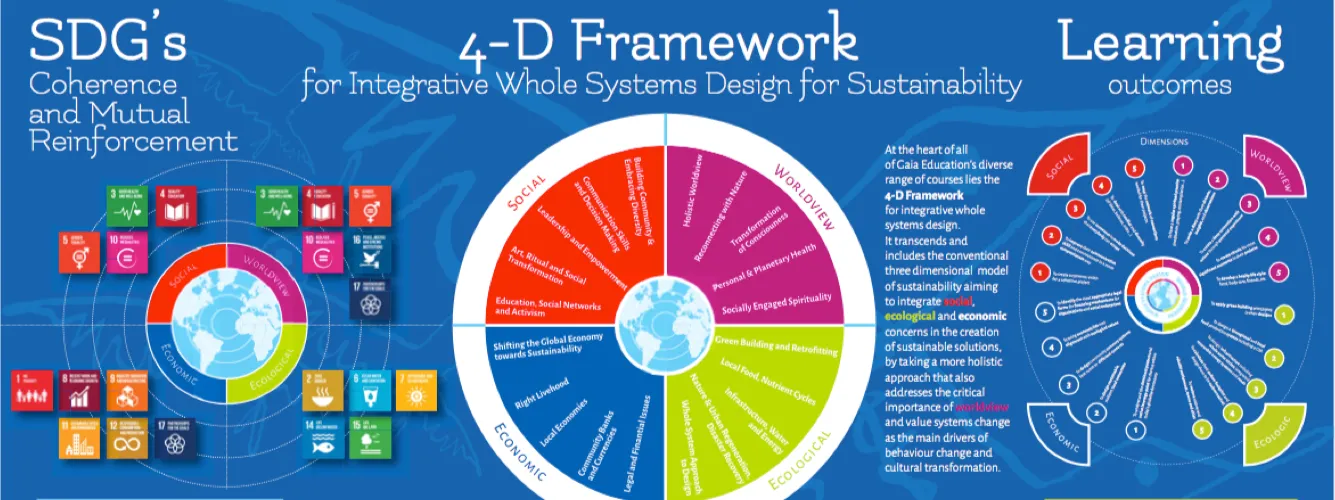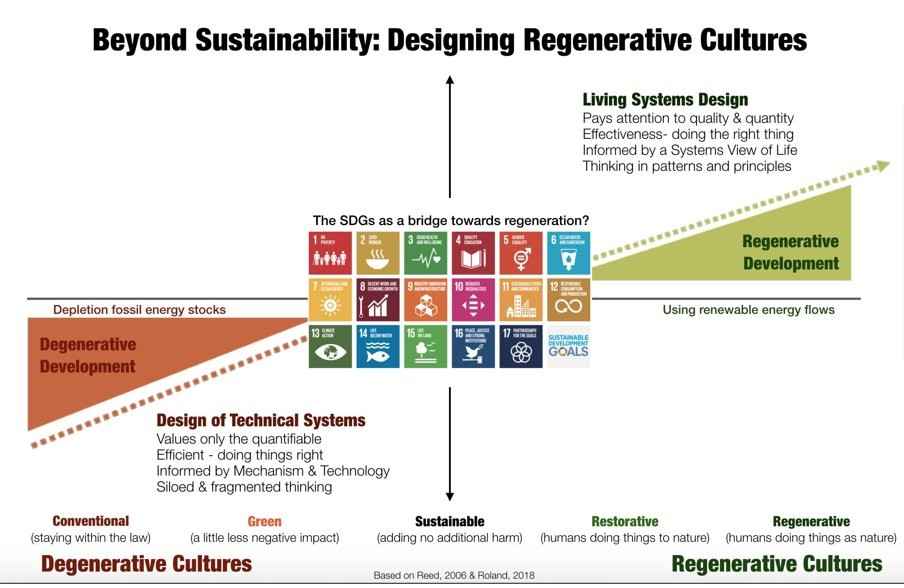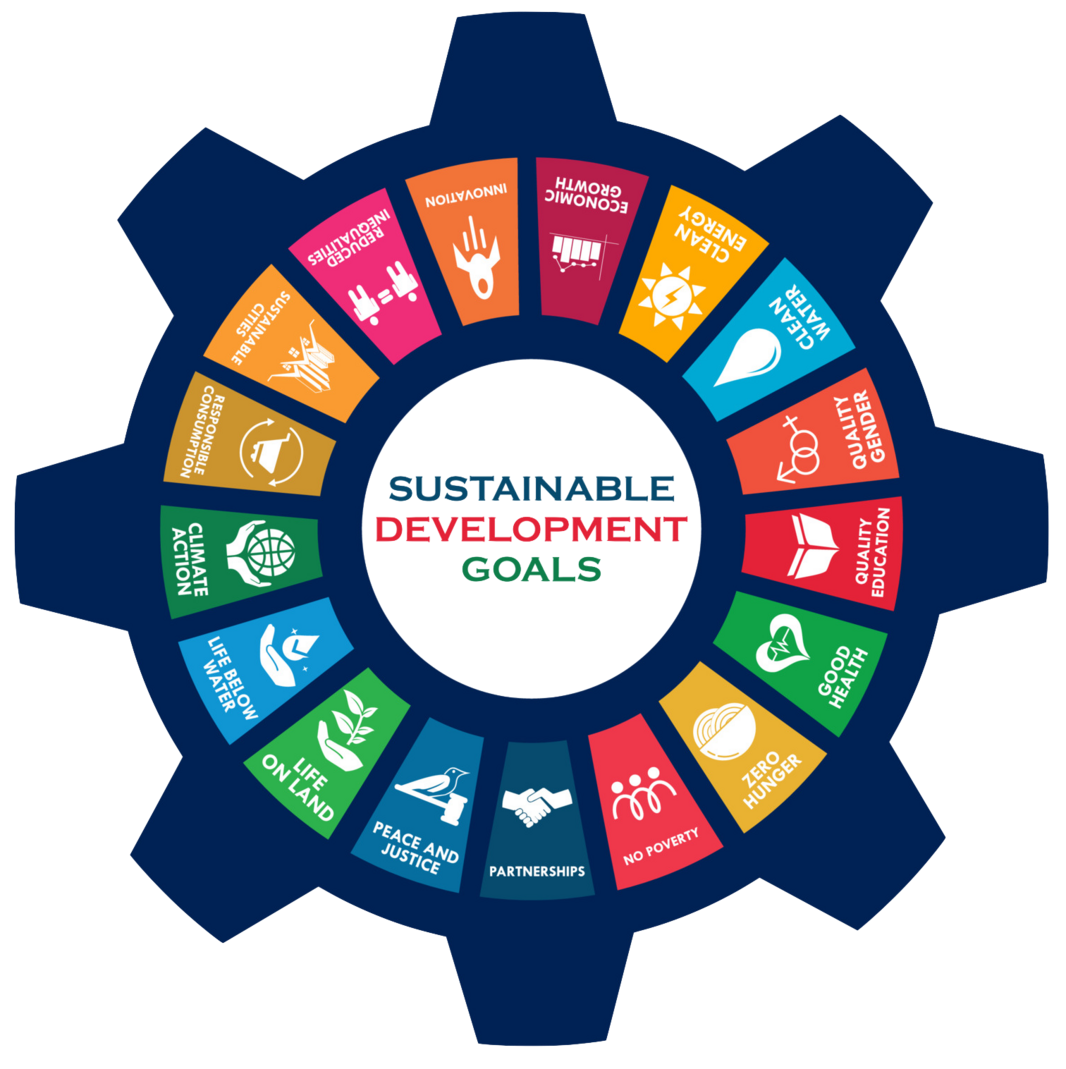GAIA EDUCATION SDG TOOLKIT
GAIA EDUCATION SDG TOOLKIT
SDG TOOLKIT FOR DESIGNING COMMUNITY PROJECTS
SDG TOOLKIT FOR DESIGNING COMMUNITY PROJECTS

More on Gaia Education’s SDG tools
More on Gaia Education’s SDG tools
“If you want to teach people a new way of thinking, don’t bother trying to teach them. Instead, give them tools, the use of which will lead to new ways of thinking.” — R. Buckminster Fuller
Gaia Education, whose focus was and is on Education for Sustainable Development since its inception, has connected with UNESCO already pre-2015 for successful endorsement of our flagship EDE/GEDS programmes as UNESCO Global Action Programme on Education for Sustainable Development, which has continues through the follow on UNESCO programme #ESDfor2030.
In December 2016 — a little over a year after the launch of the United Nations’ ‘Sustainable Development Goals’ (SDG) and ‘Agenda 2030’ — Gaia Education launched a day-long workshop format supported by a facilitation tool called the ‘SDG Implementation Flashcards.’ The SDG ‘Training of Multipliers’ and the SDG flashcards aim to promote cross-sectorial civic participation in the implementation of the SDGs at local, (bio)regional and sub-national scale.
The idea behind the development of the SDG implementation flashcards and associated training of multipliers, multiplier handbook and SDG project canvas were:
- to create a simple teaching tool that would help catalyse the all-important local scale conversations about the SDG and how to implement them. It should invite dialogue about how the UN’s “Global Goals” could be brought home to individual communities, organisations and businesses in meaningful ways that respected local culture and the uniqueness of local ecosystems.
- to scale the tools and its impact on communities and organisations quickly and effectively. This was part of creating an analogue teaching tool and a SDG Multipliers Handbook that together with the experience of participating in an SDG training of multipliers would enable people to replicate the ‘Training of Multipliers’ with their teams, communities, or in schools, universities and town halls and work on the implementation of the SDG in their own contexts.
- To provide a more effective way to generate lasting change that is adapted to the specific cultural, ecological, economic and social conditions of a particular place by asking the right questions. Questions posed in the right setting with the right diversity of people in the room can invite cross-sectorial, multi-stakeholder dialogue so people can work out what works for them and how. Living the questions together lies at the heart of the transition towards diverse regenerative cultures everywhere. It also lies at the heart of co-creating SDG implementation projects at the local and bioregional scale.
- to ensure the tools and training would guide people to a more integrative and systemic way of thinking — about the SDGs and in general. If we hope to face the uncertainty that comes with informed awareness of the converging crises and opportunities with wisdom and response-ability, we need to become more systemically literate and adopt a living systems view of life.
- to promote approaches that see each of the 17 goals as part of the bigger whole and begin to tackle the different goals together with paying attention to their interrelationships.
- To see and understand the achievement of the SDG as part of a journey, not an end goal by itself, but as milestone in the trajectory of creating regenerative and flourishing cultures and societies.

In this context it is also useful to mention that the notion of development is informed by an organic, biological understanding of development and not an unquestioned repetition of the (neoliberal) economic development agenda. This structurally unsustainable doctrine still has the potential to sabotage effective implementation of Agenda 2030. Which is why it would be advisable to distinguish between quantitative and qualitative growth and rephrase SDG number eight from ‘Economic Growth and Decent Work’ to ‘Qualitative growth and Decent Work’.
The ‘SDG Implementation Flashcards’ were developed as a tool “the use of which would lead to new ways of thinking” that would inform SDG implementation at the local community or company scale. The way the cards lead people into thinking in a more holistic way about the SDGs also gives a unique ‘Gaia Education touch’ to the cards and the associated ‘Training of Multipliers’. The flashcards use the 4 dimensional ‘whole systems design framework’ which is at the centre of all of Gaia Education’s programmes.
Together with the detailed ‘SDG Multiplier’s Handbook’ the flashcards make it relatively easy for participants in a ‘Training of Multipliers’ to replicate the training and implementation workshops once they have experienced it — given access to the manual and flashcards. In combination the cards, handbook, project and training hope to create an analog viral multiplier effect, that will spread SDG conversations that matter and lead to local and regional implementation projects everywhere.
Agenda 2030 will be achieved only if communities, businesses, local governments and civil society organisations, as well as schools and universities everywhere come to understand the Sustainable Development Goals as a shared framework and vision that enables them to structure new kinds of cross-sector collaboration. The SDGs are a huge opportunity to overcome sectorial divides and together commit to making the global goals our shared local goals. We at Gaia Education sincerely hope that the flashcards, handbook, project canvas and training of multipliers will contribute to this process.




